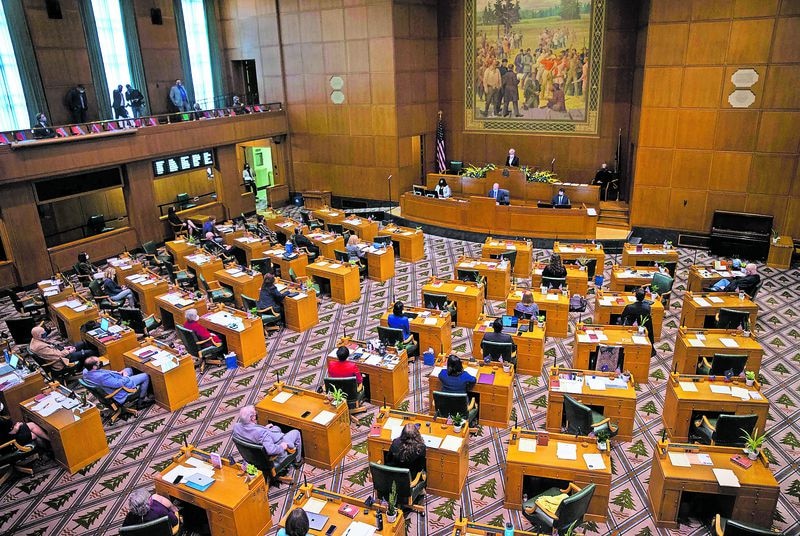By Rich Vial, Guest Columnist | The Oregonian | January 16, 2022
Vial is a lawyer, former Oregon deputy secretary of state and former Republican representative for House District 26. Now registered as a nonaffiliated voter, he lives in Scholls.
As a former state representative, I am asked often by people how I could stand to be in the Legislature with such two-faced connivers all around me. Obviously, they are referring to members of the “other” party. It would not matter which of the two major parties I had been affiliated with – and at the time, I was a Republican. The question would be the same.
The truth is that I found nearly all of my colleagues in the Oregon Legislature to be good, decent, thoughtful and well-meaning people. That includes our House Speaker, Tina Kotek, with whom I often disagreed on policy. While anyone who achieves elected office must have ambition, I was always impressed at the public service that was evident not only in the halls of the Capitol, but in the communities, churches, schools and other eleemosynary organizations that many actively participated in. I felt privileged to be among them.
But the same divisiveness that has infected national politics is apparent here in Oregon as well with the days of compromise between parties long gone. In his recent eulogy for former U.S. Senator Bob Dole, President Biden noted that Dole “lived by a code of honor” in which he put honor above party loyalty, even at the peril of party support. In his own words at the end of his life, Dole said “I cannot pretend that I have not been a loyal champion of my party, but I have always served my country best when I did so first and foremost as an American.” In his final years, he shared his concern that the growing difficulty of trusting each other was democracy’s greatest enemy.
We hear this theme constantly today. All of us agree that we need to see each other as neighbors and not as enemies and that we must be able to disagree without demonizing. But in spite of our constant lamentation, things are getting worse, not better. It is time for us to face the reality that without changing the rules, the game will continue to be played in ways that drive the wedge between us deeper with each play.
In a few short weeks, a new legislative session will begin. What bills get considered, who serves on committees, who chairs committees, what debates get heard, and ultimately the outcomes of that session will be largely driven by the speaker of the House.
Since 2013, Kotek has held that power, but with her run for governor, she has announced her plan to step down later this month. With the departure of Kotek, described by gubernatorial opponent Betsy Johnson as someone who has “taken the unchecked exercise of power to an art form,” we suddenly have a rare opportunity to try a new and promising approach to addressing polarizing partisanship.
Traditionally, the majority party chooses its candidate for House speaker behind closed doors and then pushes it through with a full House vote. This year, the full House should instead vote from the start via secret ballot, making it much more likely that a leader would emerge who is capable of dialing back the divisive conduct, and getting the trust of all the members – not just those of the majority party. Oregon should also stop providing funding for party caucuses, whose primary purpose is to ensure that the members of the caucus are reelected, don’t stray from the party line and strengthen the power of the party. Ending that practice would likely result in more of our legislators summoning the courage to listen, compromise and really get the work done that they were elected to do. If legislators also elected committee chairs via secret ballot, instead of simply allowing the party leadership to dictate, it is very likely that we would see much more open and thoughtful debate and not be focused on polarization as a tool to perpetuate whatever power has been achieved.
These are specific things that can be done that would result in a profound change to the way our leaders function. Our next House speaker, with the cooperation of our legislators, can set an example in how to operate and deliberate in a way that improves trust with one another and with the public.
Without trust, there can be no democracy. Our leaders must demonstrate their commitment to defending both.

